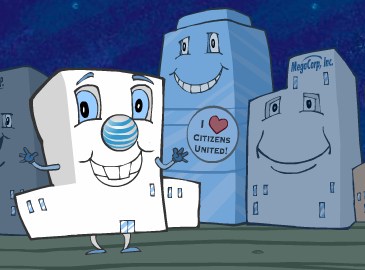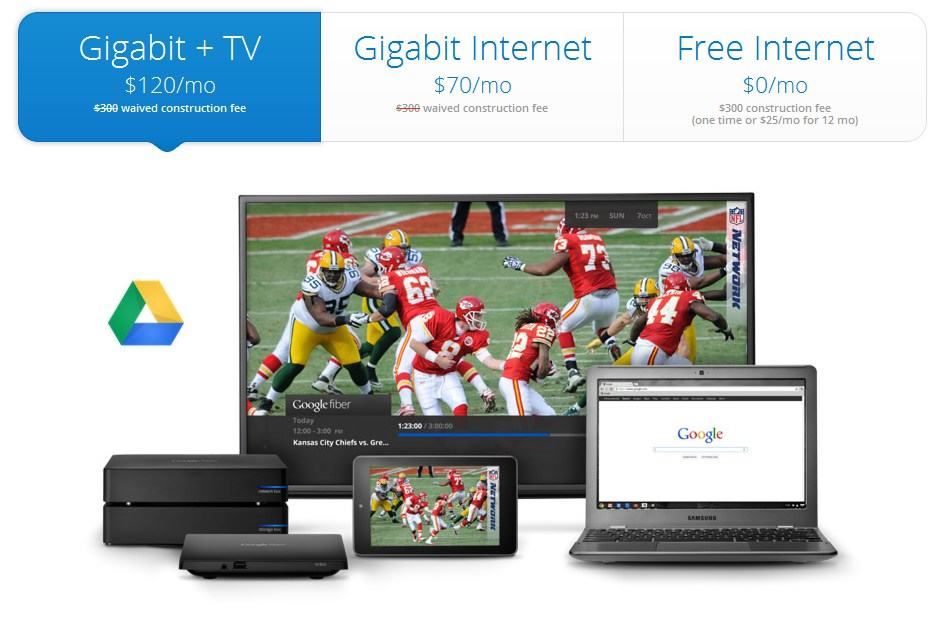
AT&T loves corporate free speech rights, the same ones it is using to deny customers access to Google’s Play Movies service.
With wireless Net Neutrality rendered largely ineffective with the help of AT&T and Verizon Wireless’ extensive lobbying and legal threats, AT&T has leveraged its right to govern its own network by deciding to block its wireless customers from watching Google Play Store’s streaming movie service over its 3G and 4G networks. This block is enforced even though AT&T already throttles heavy “unlimited” users and charges others more for using more data.
Geek.com was the first to discover AT&T’s curious dislike of Google Play Movies, while leaving other streaming services like Netflix, HBO Go, YouTube, and others alone (for now):
Instead of The Anchorman […] I was greeted with an error message telling me that I was not allowed to stream this movie over the mobile network. Assuming it was just an error, I tried again and got the same message. After a few minutes of playing with settings, it became clear that I was not going to be able to watch this movie without WiFi.
Yes, it seems that AT&T has removed the ability to watch Google Play Movie files over their 3G and LTE networks. This only happens with Google Play Movies, and only on AT&T. […] Curiously enough, you can download or “pin” a Google Play Movie over 3G and LTE and the only warning you get is one from Google explaining that you might incur data costs.
AT&T and Verizon have both declared Net Neutrality violates their free speech rights as corporate citizens — rights further expanded with the Supreme Court’s “Citizens United” decision.
When Federal Communications Commission chairman Julius Genachowski sought to introduce mild Net Neutrality protections for the Internet, both companies threatened to sue (Verizon has a case pending) and conservative commentators launched into tirades about “an Obama takeover of the Internet.”
RUSH LIMBAUGH: Today the FCC approved a proposal by chairman Julius Genachowski to give the FCC power to prevent broadband providers from selectively blocking web traffic. And that’s just a ruse. Net Neutrality is not what this is really all about. This is about the feds wanting to control the Internet just as they control the public airwaves. They want to be able to determine who gets to say what, where, how often — they want to be able to determine what search services are providing what answers to your queries. It’s total government control of the Internet, and the regime has just awarded it to itself.
It’s another gleaming aspect of free speech, free market, private industry Obama has decided to take over as a Christmas present to himself and the Democrat National Committee and to Mr. Soros. He’s even beaten Hugo Chavez to the punch. Chavez is just talking about taking over the Internet in Venezuela; Obama has got it done.
Geek.com doesn’t think the Obama Administration is blocking Google Play over AT&T — AT&T is. They just cannot understand the reasoning why:
I can’t imagine any real world justification for this behavior. If you pay your carrier for an internet connection to your phone, should the provider really be allowed to control how you use that connection? What’s more is that this happened over AT&T’s high speed and mostly empty LTE network. I can easily create a wireless hotspot on this same phone and stream a video from the Nexus 7, using the exact same data connection to accomplish the exact same task. This move is confusing at best, and AT&T is going to quickly alienate customers eager to take advantage of their brand new LTE devices as they receive them.
[flv width=”640″ height=”500″]http://www.phillipdampier.com/video/Corporateland.flv[/flv]
Mark Fiore channels Disney-sentimentality schtick on a whole new level with his take on AT&T’s Pinocchio-CorporateLand dream come true: the right to be human. (1 minute)


 Subscribe
Subscribe




